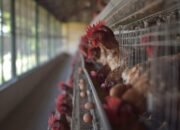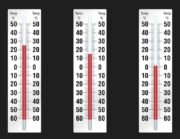California has passed a new law that gives new protections and rights to the fast food workers in the state, but the details of how the law was negotiated and finalized are shrouded in secrecy. According to multiple sources, the groups involved in the negotiations signed non-disclosure agreements (NDAs) that prevent them from revealing what happened behind closed doors. The law has been criticized for having a special exemption for bakeries, which some allege was influenced by one of the governor’s donors who owns a Panera franchise.
The new law, which was signed by Governor Gavin Newsom in December 2023, and will take effect on April 1, 2024, is the first of its kind in the nation. The law aims to improve the working conditions and the wages of the fast food workers in the state, who are often exploited and mistreated by the fast food corporations and franchisees. The law has the following provisions:

- It requires the fast food corporations to pay a minimum wage of $20 per hour to the workers, which is higher than the state minimum wage of $15 per hour.
- It allows the workers to form councils and committees, and to bargain collectively with the fast food corporations and franchisees, without fear of retaliation or interference.
- It prohibits the fast food corporations and franchisees from firing, demoting, or transferring the workers without just cause, and from using algorithms or artificial intelligence to manage the workers.
- It establishes a Fast Food Sector Council, which will consist of representatives from the workers, the corporations, the franchisees, and the state, and which will oversee and enforce the law.
The law is expected to benefit more than 500,000 fast food workers in the state, who are mostly low-income, immigrant, and people of color. The law is also expected to set a precedent and an example for other states and industries, and to inspire more workers to organize and demand their rights.
The Controversy Over the Bakery Exemption
However, the law is not without controversy, as it has a special exemption for bakeries, which are defined as establishments that primarily sell baked goods, such as bread, pastries, cakes, and pies. The exemption means that the bakeries are not subject to the minimum wage, the collective bargaining, and the just cause provisions of the law, and that they are only subject to the Fast Food Sector Council.
The exemption has raised questions and suspicions, as some allege that it was influenced by one of the governor’s donors, who is also a Panera franchisee. According to the Sacramento Bee, the donor, John Miller, is a billionaire who owns more than 200 Panera locations in California and other states, and who has contributed more than $250,000 to Newsom’s campaigns and causes. Some claim that Newsom pushed for the exemption to benefit Miller and his business, and to reward him for his support.
Newsom has denied the allegations, and has said that the exemption was based on the recommendations of the Fast Food Sector Council, which was formed in 2020, and which included representatives from the workers, the corporations, the franchisees, and the state. Newsom has also said that the exemption was consistent with the definition of fast food used by the U.S. Bureau of Labor Statistics, and that it was fair and reasonable.
Miller has also denied the allegations, and has said that he never asked for or received any special treatment from Newsom or anyone else. Miller has also said that he supports the law and the workers, and that he pays his workers above the minimum wage, and provides them with benefits and opportunities.
The Mystery of the Non-Disclosure Agreements
The controversy over the bakery exemption has also exposed the mystery of the non-disclosure agreements that were used in the negotiations of the law. According to multiple sources, who spoke on the condition of anonymity, the groups involved in the negotiations, such as the labor unions, the fast food corporations, the fast food franchisees, and the state officials, signed NDAs that prevent them from disclosing what happened behind closed doors. The sources said that the NDAs were requested by the state, and that they were necessary to facilitate the negotiations and to reach a compromise.
The sources said that the negotiations were complex and contentious, and that they involved many trade-offs and concessions from all sides. The sources said that the bakery exemption was one of the issues that was discussed and debated, and that it was not a unilateral decision by the governor or anyone else. The sources said that the NDAs were meant to protect the confidentiality and the integrity of the negotiations, and that they were not intended to hide or cover up anything.
However, the NDAs have also raised concerns and criticisms, as some argue that they are a violation of the public’s right to know, and that they undermine the transparency and the accountability of the lawmaking process. Some also argue that the NDAs are a sign of the influence and the power of the special interests, and that they prevent the public from knowing the true motives and the interests of the parties involved.
The NDAs have also made it difficult to verify and to challenge the claims and the counterclaims of the governor, the donor, and the others, as there is no official record or evidence of what happened in the negotiations. The NDAs have also made it impossible to know if there were any other exemptions or provisions that were negotiated and agreed upon, and that were not disclosed or reported to the public.
















